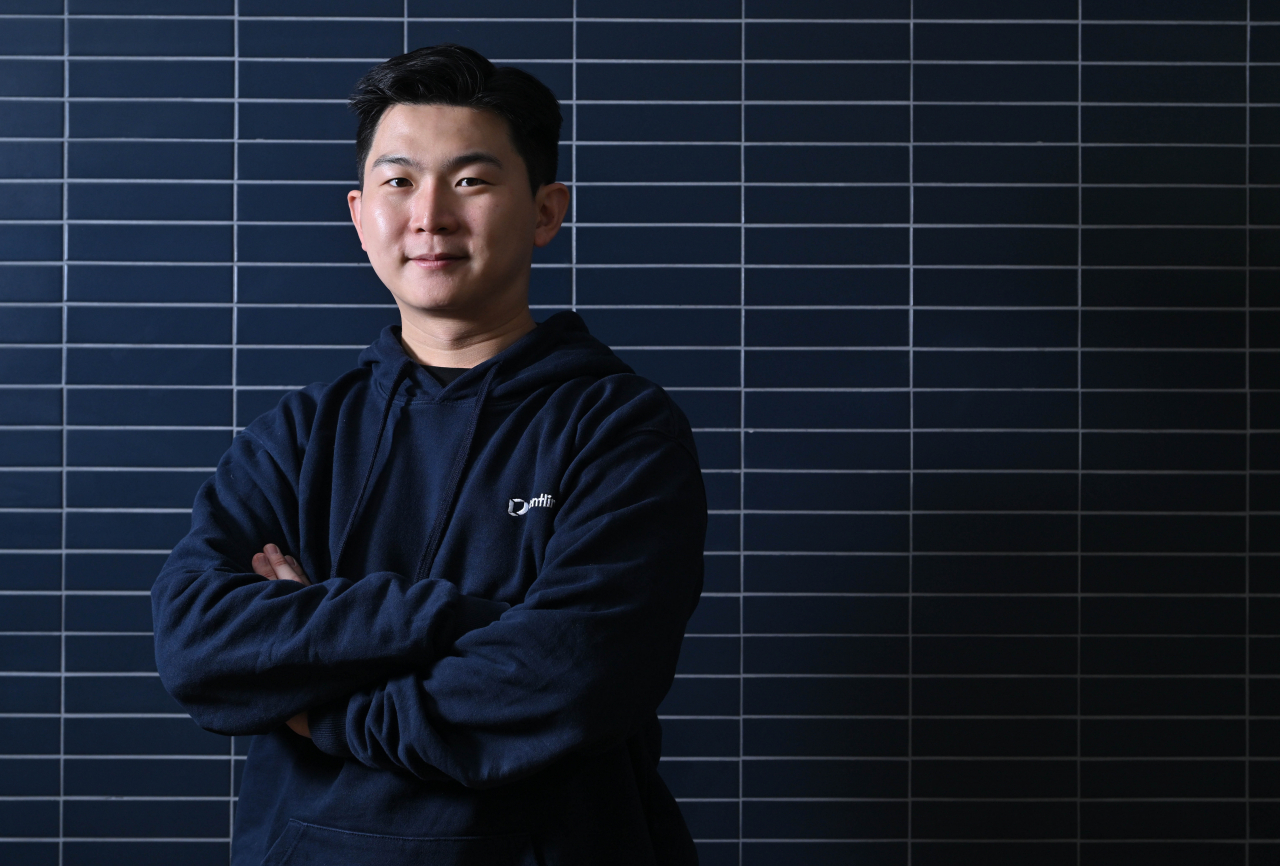 |
Innovaid founder and CEO Kook Jin-hyeok poses during an interview with The Korea Herald held at his office in Mapo-gu, western Seoul. (Im Se-jun/The Korea Herald) |
Dentlink intends to become a household name in the burgeoning dental prosthetic market, matching the fame of Align Technology, the US company behind the Invisalign clear teeth straightener, said Kook Jin-hyeok, founder and CEO of Innovaid.
Kook founded Innovaid in 2021 to offer Dentlink, a unique international service connecting Korean lab technicians with overseas dental practices. Through it, dental clinics around the world can order prostheses such as zirconia crowns and implant restorations from technicians here.
“Korea is a powerhouse in dental prosthesis manufacture. The quality is better, the price is cheaper and the products are made in a shorter time,” Kook told The Korea Herald in a recent interview in Seoul, attributing the competence to the nation's tightly controlled license system.
The remake rate for dental prostheses is 8 percent in the US, while the Korean average is 3 percent. Kook said that Dentlink brought the figure down to 0.6 percent based on a more advanced computerized system.
“Through Dentlink, skilled technicians in Korea can take orders from around the world, while overseas dental clinics can use better products at prices about 40 percent cheaper,” he explained.
“Dentlink can become the next Invisalign, the household name for dental prostheses.”
Dentlink initially targeted the domestic market, but pivoted in 2022 to focus solely on overseas markets. Currently, it posts an average of 350 million won ($260,000) in monthly sales, a jump from 200 million won earlier this year. The US is its largest market, accounting for 70 percent of total sales, followed by Australia at 25 percent.
“The dental prosthesis market will only grow, backed by the aging population. Dentlink can take the local prosthetic industry to another level. It can benefit not just the technicians, but doctors and patients in a broader perspective,” he said.
The wider distribution of three-dimensional dental scanners is essential for digital dentistry to expand, Kook said. Dentlink relies heavily on the appliance because lab technicians and dentists communicate with each other through images created by the 3D imaging system.
The distribution rate of such 3D scanners stands at around 50 percent in the US, considerably higher than 20 percent in Korea, according to Kook.
As part of plans to make the scanners more accessible, Dentlink has teamed up with Medit, a leading provider of dental 3D scanners based in Korea, to offer subsidies to dental practices to purchase the scanners.
“If more dental clinics have a scanner, it would mean more room for Dentlink’s business,” he said.
Kook launched the business when he was studying dentistry at Yonsei University. Concerned about lacking hands-on clinical experience, Kook still works at a family-owned dental practice from time to time.
“By continuing to be engaged with patients, doctors and other workers at the clinic, I can figure out the pain points and learn how Dentlink should be improved,” he said.
In the meantime, Innovaid is in search of global talent to spur growth in key markets. Having launched a subsidiary in the US, it plans to open another unit in Australia within this year.
“We need fearless people, those who are not afraid to venture out globally. I hope it could be people who realize the importance of establishing a presence on an international stage. Those with a fast understanding of a new domain would be ideal,” he said.





![[Herald Interview] How Gopizza got big in India](http://res.heraldm.com/phpwas/restmb_idxmake.php?idx=644&simg=/content/image/2024/11/20/20241120050057_0.jpg)

